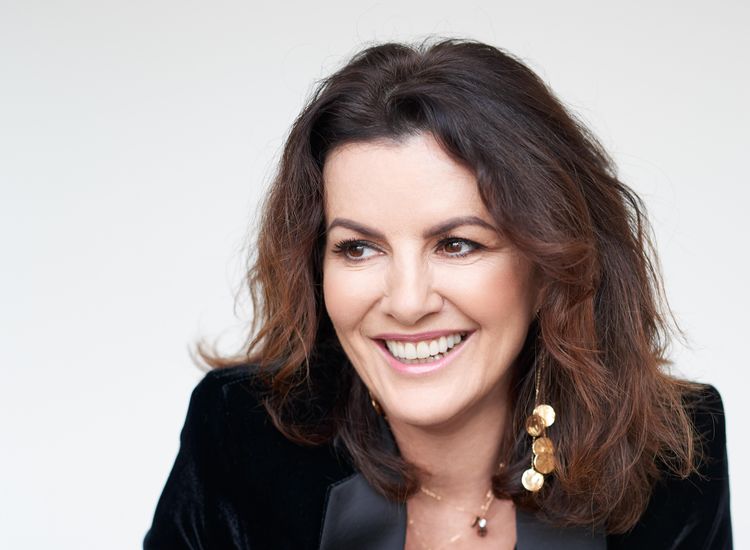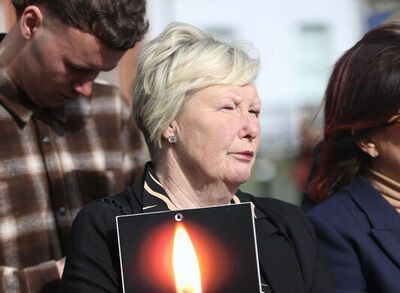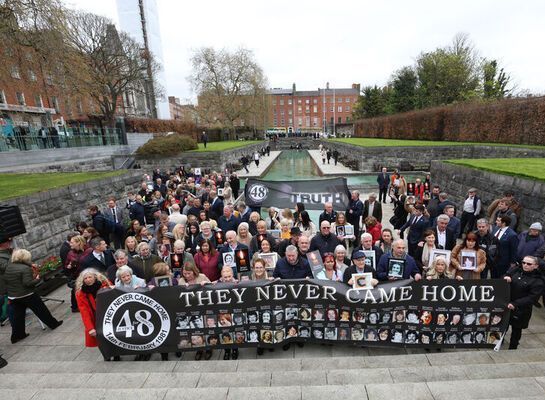John Bew won the Orwell Prize in 2017 for his biography of Clement Attlee.
Page Turner / Edited by Peter McDermott
Clement Attlee took his seat on the panel ahead of a session of the Trades Union Congress held in Blackpool in 1943. At the prompting of the union leader who would chair it, an aide asked Attlee to leave and come back through the main entrance when the hall was full. As soon as the chairman saw him at the door, he said: “Let’s give a good reception to our political leader, the Deputy Prime Minister.”
In his acclaimed biography “Clement Attlee: The Man Who Made Modern Britain,” John Bew writes: “As he walked down the middle of the hall he got one of the loudest and genuinely warm standing ovations of his political life.”
Attlee whispered to the aide: “Was that really necessary?” The reply came: “That should be normal, not unusual.”
Bew told the Echo: “Attlee led the Labour Party for 20 years, fought in the First World War – carried off the battlefield at Gallipoli, Mesopotamia and the Western Front – served as Deputy Prime Minister during the Second World and beat Winston Churchill emphatically at the 1945 general election. His government transformed Britain forever and he was centrally involved in the shaping of the post-war order. Yet my feeling was that he had rarely been given his due in public life, that he had suffered by the comparison with Churchill and it was time to tell the story of a more heroic Attlee.”
Attlee was born in suburban London on Jan. 3, 1883, the seventh of the eight children of barrister Henry Attlee, a supporter of Gladstone’s Liberal Party. The future prime minister’s mother Ellen was a Conservative, as were most members of the extended family. Clement Attlee wrote later than he “matured into socialism” as a young man. His older brother and life-long confidant Tom was also a convert, and additionally a conscientious objector during the 1914-18 conflict.
In the Edwardian era, Fabian thinkers like Sidney and Beatrice Webb and George Bernard Shaw held sway on the left, but Attlee admired more the Scottish socialist and trade unionist Keir Hardie, who in 1906 became the first leader of the Labour Party in Parliament.
Although Attlee had followed his father into the legal profession, he would increasingly devote his energies to working with and for the poor of London’s East End. He sought office at the local level with the Independent Labour Party before the war and was eventually elected to Parliament in 1922. A devoted husband and father of four living in the suburbs, he was elevated to the leadership in December 1935. He may be a secular saint in the British Labour movement these days (one sitting member of Parliament of Irish parentage named her son Clement in his honor), but he was considered essentially a caretaker leader up through the election victory of 1945, with some of the better-known alternatives being unacceptable for one reason or another. He was an unlikely leader, too. For one thing, he was an introvert in a party that had many forceful, larger-than-life personalities. Only 2 percent of Britons polled in 1942 thought he would be the ideal replacement for Churchill; Stafford Cripps (24 percent) on Labour’s left and the Tory Anthony Eden (39 percent) were their top choices.
Attlee was often at his most loyal to Churchill when things weren’t going well; but the war news improved and he was prepared to stand up to him in the War Cabinet just “as the sycophants gathered around the feet of the prime minister again,” in Bew’s words.
When Attlee, who aside from occasional criticism had held generally pro-American views since World War I, visited San Francisco for the United Nations Conference in April 1945, the locals weren’t quite sure what to make of him. “An Australian journalist told him that his American colleagues had been divided by his performance,” Bew writes. “One had ventured that Attlee would be torn to pieces by a lion like Churchill in any election; another retorted, to Attlee’s amusement, ‘I’ll bet this sucker eats lions.’”

The former British Prime Minister Clement Attlee, who criticized the U.S. on occasion but generally held pro-American views from World War I on, met with President John F. Kennedy in the Oval Office on May 16, 1961.
ROBERT KNUDSEN/JOHN F. KENNEDY PRESIDENTIAL LIBRARY AND MUSEUM
And so it proved. First, however, he’d secured his position within the party. “The underlying reality was that Attlee’s political instincts were far subtler and more attuned to the mood of the country than those of his main critics, [Aneurin] Bevan and [Harold] Laski,” according to his biographer. “He has been consistently underestimated as a practitioner of these arts.”
The recent deputy prime minister went on to outmaneuver and out-argue Churchill in the summer election of 1945.
The Cambridge-educated Bew, who is a professor of history and foreign policy at King’s College London, makes the case that the wartime No. 2 would prove to be the country’s greatest of all peacetime prime ministers. The book won him in 2017 the Orwell Prize, which is given for political writing of outstanding quality. He described that recognition as the “highlight of my career.”
“Clement Attlee” had already received universal praise from the critics. Robert Harris, for instance, wrote in the Sunday Times that Bew’s subject “steps out like a character from the pages of the social novels of H. G. Wells or George Orwell,” and Daniel Bell said in the Times Higher Education Supplement: “This book is a rare beast – political biography at its finest, yet one that is deeply moving.”

John Bew
Date of birth: 1980
Place of birth: Belfast
Spouse: Jo
Children: Lara
Residence: London
Published works: “Clement Attlee: The Man Who Made Modern Britain” (2017); “Realpolitik: A History” (2016); “Castlereagh: Enlightenment, War and Tyranny” (2011); “Talking to Terrorists: Making Peace in Northern Ireland and the Basque Country (2009); “The Glory of Being Britons: Civic Unionism in 19th-Century Belfast” (2009).
What is your writing routine? Are there ideal conditions?
It seems more like madness than method, but I do my writing in intensive bursts over a few months. I am always collecting material for whatever I work on, which is a lot easier these days due to modern technology, and buying second hand books for next to nothing. But I don’t write chapters gradually or to any specific plan. When the deadline begins to loom, I have to block out my calendar completely for months on end, and I work 12 to 14 hour days. I can write around 6,000 words a day though I certainly have to go back and improve it later on. I’m not sure this method will work for me as I get older as it requires a lot of caffeine.
What advice do you have for aspiring writers?
First, make up your mind and run with it. Writers are inflicted with such crushing self-doubt that they lose their own voice in the writing process. Be confident enough to believe you have something to say and try to say it in the most compelling way possible. Second, make sure you redraft your work as many times as possible - it can always be improved. Third, sheer physical energy is underestimated as a vital attribute for writers.
Name three books that are memorable in terms of your reading pleasure.
Three novels: Joseph O’Connor’s “Star of the Sea”; Emily St. John Mandel’s “Station Eleven”; anything by Margaret Atwood.
What book are you currently reading?
Andrew Roberts’s masterful biography of Churchill and Richard Evans’s biography of Eric Hobsbawm.
Is there a book you wish you had written?
“The Prince,” by Niccolo Machiavelli.
Name a book that you were pleasantly surprised by.
John A. Farrell’s brilliant biography of Richard Nixon.
If you could meet one author, living or dead, who would it be?
Edmund Burke.
What book changed your life?
Henry Kissinger, “A World Restored.”
What is your favorite spot in Ireland?
“The Oval,” the stadium of my football team Glentoran, which overlooks the shipyards in East Belfast.
You're Irish if...
You spend a little too long thinking about your identity.










